A call for women to have half the seats in Fiji’s parliament
12th October, 2012

FWRM & FWCC make constitution presentations (PHOTO FWRM)
Half the seats in Fiji’s parliament, half the members of the Great Council of Chiefs and half of all positions in ever political body in the country should be reserved for women. That’s according to a submission to the Constitution Commission made earlier today by the the Fiji Womens Rights Movement and the Fiji Womens Crisis Centre. Tara Chetty, program officer of the Fiji Womens Rights Movement, says such a drastic move is needed, as a temporary measure, to redress a massive gender imbalance in power.
Presenter: Bruce Hill
Speaker:Tara Chetty, program officer of the Fiji Womens Rights Movement
Listen to the Radio Australia interview online here.
CHETTY: For Fiji as well as the rest of the Pacific has an absolutely atrocious record in terms of women’s representation and national decisionmaking. I think the best we’ve ever peaked that is around 17 per cent and that’s when you counted kind of both Houses of Parliament. It’s usually running at under ten per cent and it’s widely acknowledged that the Pacific is simply the worst in the whole world in terms of womens representation in national decisionmaking.
So what happened was when women leaders got together earlier this year, during the Womens Forum, or the National Consultation on Democratic Processes that we had here in Suva, there were women leaders from all around the country and we had two of those in April, and then again in June, and the women there came to a collective decision that we needed to make a strong call in terms of womens decisionmaking and we needed to push for the full 50 per cent representation of women that we feel is needed to really put the brakes on this atrocious trend in terms of low numbers of women in decisionmaking.
HILL: You’re calling here for half of all the seats in parliament and every other elected body in Fiji to be set aside specifically for women. Are you serious about that?
CHETTY: Well, we are serious. We are serious. We feel that we’ve been under-represented for far too long and this is not the time to be kind of playing it coy and asking for ten per cent here or 20 per cent there, but rather to state very clearly what we want to see. Now, obviously, that is a negotiable position. We are happy to discuss it further, but we just wanted to make our intentions very clear that we’re very serious about the special needs of women in terms of their access to decisiomaking, that it can’t just happen organically on its own, because of the way that society is stacked against women.
HILL: Why can’t it happen organically on its own, as it’s happened in other countries around the world?
CHETTY: Well, we’re we’ve seen it happen most successfully is where there have been temporary special measures for women in decisionmaking. So, for example, in cases like Rwanda, where they have had special measures in place. I think in that case, it’s reserved seats.
In other places, pressure has been put on in different ways, so where there’s not an official national quota, for example, like in Australia. Instead, people have worked through the party system, to get parties to have their own quotas in terms of party lists. So there’s lots of different options in terms of what type of temporary special measures you use. The point is that we need some and we need the direction to come from the Constitution to show what a serious issue it is for us in Fiji.
HILL: Let’s say, for arguments sake, you do get this through and 50 per cent of all the seats in parliament and 50 per cent of the members of the Great Council of Chiefs and every other body in Fiji are women. Would there really be a practical effect on Fiji?
CHETTY: I think it would be huge. You’d finally be getting voices in there that you really just haven’t heard before. It wouldn’t be about a few elite women who were able to work the system to get in or the few hard working activists and feminists that were able to make it into parliament. But you would actually have a critical mass of women who could conceivable work together, to advance gender equality and human rights and what experience from around the world has shown is that if you focus on enhancing the rights of women, you actually in effect address many of the rights, concerns for a whole entire cross section of the community. So where women fair better, the entire community fairs better.
HILL: You’re vision for this goes beyond parliament itself and you’re talking about every other group in Fiji, including, for example, the Great Council of Chiefs having half of its membership be women. My understanding is that’s not really how the Great Council of Chiefs operates?
CHETTY: No, well, of course, at the moment, they are actually in a bit of limbo, because under the current authority, they’re not in operation. So in our submission, we’ve suggested that this is really a matter for that group to decide for themselves. They should be reinstated with an under elected government, with a view to thinking about their role in the future of how they can incorporate suggestions like ours, in terms of representation of women, representation of young people, and what kind of role they can really play for both the local community and the broader Fiji community as a whole. So it’s for that body to really start to think about how does it work and how it can incorporate the changes in Fiji’s society within its own kind of structure and functioning.
[Radio Australia]

